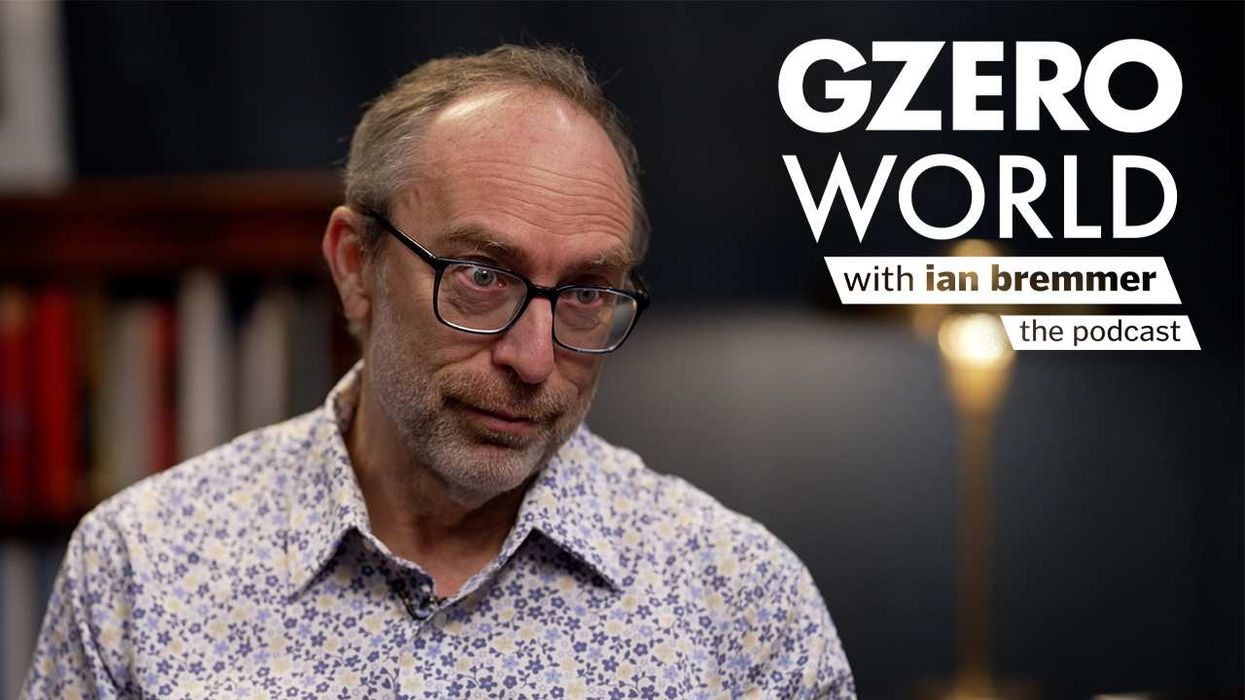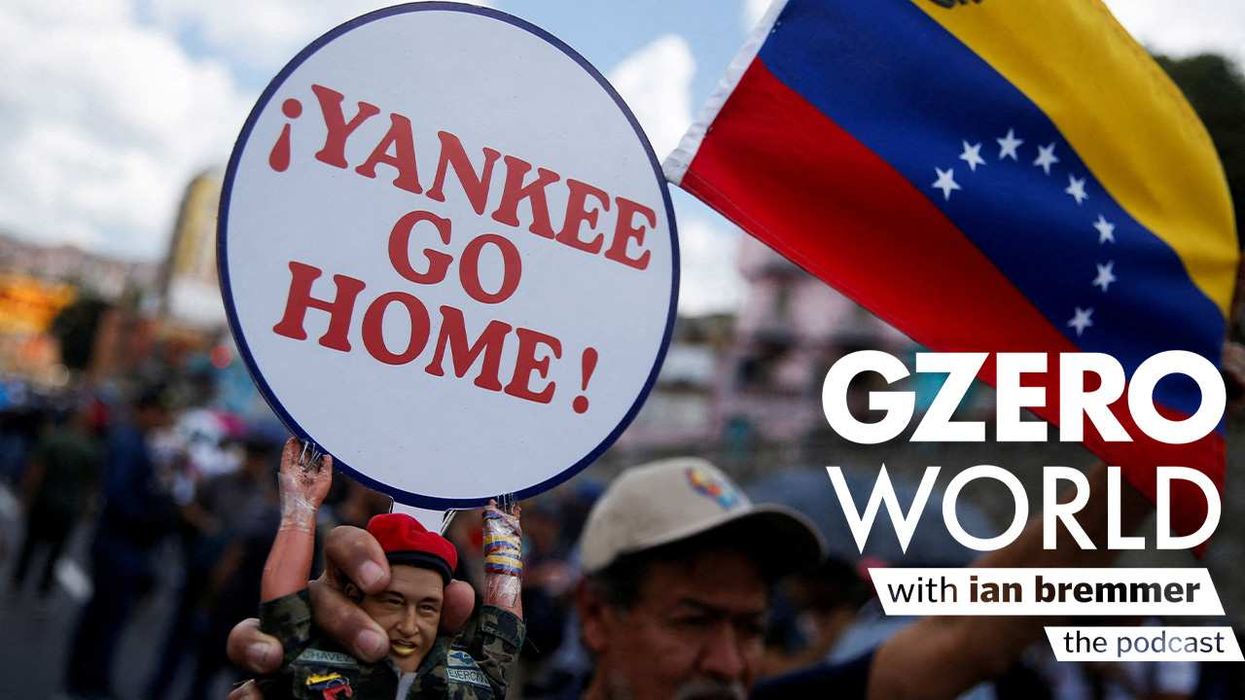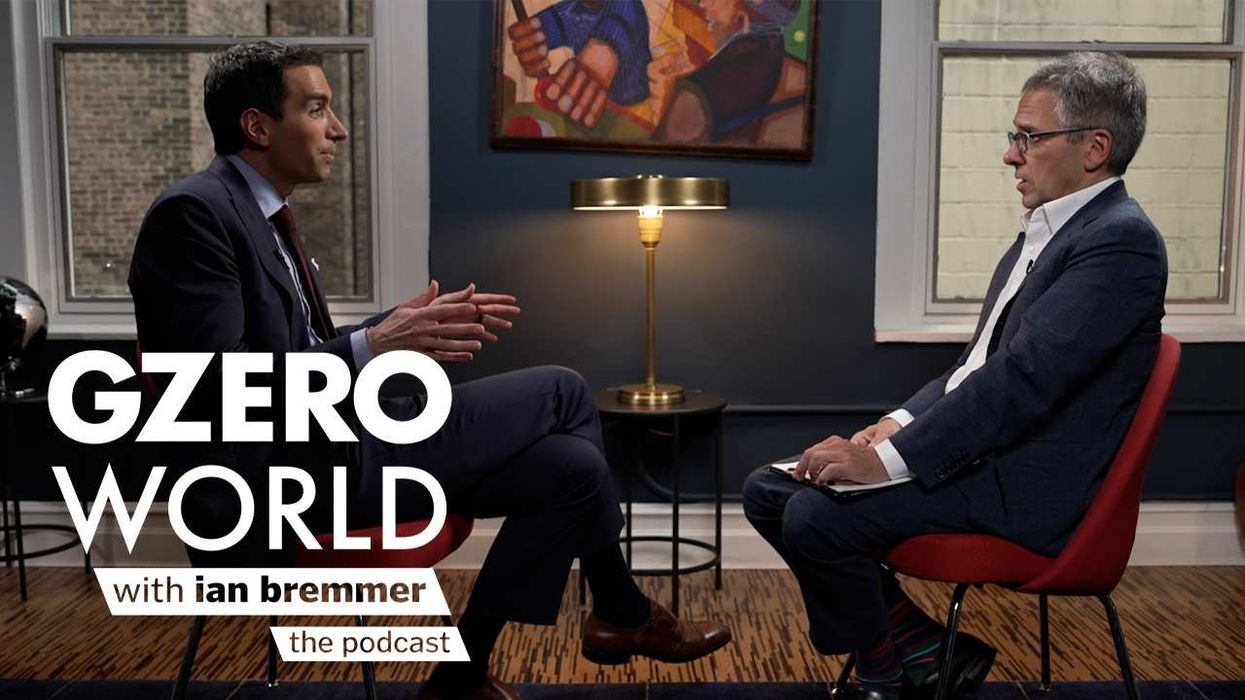War and Peace in 2025, with Clarissa Ward and Comfort Ero
Global conflict was at a record high in 2025, will 2026 be more peaceful? Ian Bremmer talks with CNN’s Clarissa Ward and Comfort Ero of the International Crisis Group on the GZERO World Podcast.
This week, instead of zooming in on a single conflict, the GZERO World Podcast looks back on 2025 and takes stock of a world increasingly defined by conflict. Ian Bremmer sits down with CNN Chief International Correspondent Clarissa Ward and Comfort Ero, President and CEO of the International Crisis Group to look at some of the biggest crises of 2025–-both the headline making wars and the ones the world overlooked.
Gaza and Ukraine captured the world’s attention this year. But at the same time, around 60 other armed conflicts and struggles have been raging around the world. It’s the most active period of conflict since the end of World War II. Some are decades-long battles, like Myanmar’s devastating civil war. Others are more recent, like the surge of terrorist insurgent groups in Africa’s Sahel. But each is a symptom of a broader global order breaking down—driven by weakening institutions, regional rivalries, climate shocks, and failing states. Bremmer sits down first with Clarissa Ward, to discuss her reporting from war zones around the world and then with Comfort Ero, for a global perspective on the conditions that have created so much strife.
“I think it's important not to stop talking about Ukraine and Gaza because what happens there in those two conflicts set the precedent for other places,” Ero tells Bremmer.












